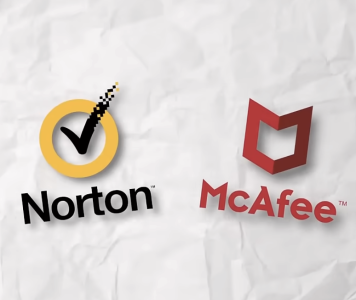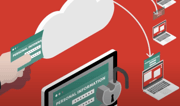Think twice before putting these bills on autopay
By
Veronica E.
- Replies 0
Autopay can feel like the perfect solution for managing bills—it saves time, prevents late fees, and helps maintain a solid credit history.
But convenience sometimes comes at a cost.
Many Americans don’t realize that allowing bills to run on autopilot can mean paying for things they don’t use, missing hidden fees, or overlooking sudden price hikes.
For those living on a fixed income, every dollar counts, and letting money slip away unnoticed can quickly add up.
That’s why it’s important to understand which expenses are best kept off autopay and reviewed closely each month.

Autopay works best when bills are consistent, but many expenses fluctuate.
If you’re not checking your statements, you could miss billing errors, surprise charges, or seasonal spikes.
An unexpected withdrawal from your account could also result in overdraft fees.
For many, reviewing bills each month is still the best safeguard against paying for more than you should.
1. Utility bills (electric, gas, water)
Utility costs often rise and fall depending on the season or household usage.
Without checking, you may overlook an unusually high charge caused by a leak, a faulty meter, or a billing mistake.
2. Cable or satellite TV
Cable providers frequently add new fees or remove discounts.
If your bill is on autopay, you might not notice a higher rate until months later.
Reviewing your bill manually gives you a chance to question and negotiate charges right away.
3. Cell phone bills
Shared or limited data plans can rack up overage charges quickly.
Carriers also add small fees or plan “upgrades” over time.
Looking at your bill each month helps you catch changes before they become expensive habits.
4. Annual subscriptions
Services such as warehouse memberships, antivirus software, or online tools often auto-renew without warning.
If you’re not using the service enough, a large charge may hit your account before you’ve had time to reconsider.
5. Gym memberships
Many people pay for memberships they rarely use.
Gyms encourage autopay because members are less likely to cancel. Paying month-to-month keeps you in control of whether the cost is worthwhile.
6. Free trials
Most free trials require payment information and automatically switch to a paid plan once the trial ends.
Unless you cancel on time, you’ll be charged without realizing it. Setting reminders—or using a prepaid card—can help.

7. Streaming services
With multiple streaming options available, it’s easy to forget which ones you’re subscribed to.
If you’re not watching regularly, paying manually prompts you to ask if the service is worth keeping.
8. Subscription boxes
Products like snack boxes or hobby kits can be fun at first but may lose their appeal over time.
If you’re on autopay, you may continue receiving—and paying for—items you no longer want.
9. Newspapers and magazines
Introductory offers often jump in price after a set period.
Autopay renewals can mean paying for another full year at the higher rate without realizing it.
Handling bills manually may seem old-fashioned, but it puts you back in the driver’s seat.
Reviewing statements each month helps you catch mistakes, notice price increases, and decide if the service is still worth the cost.
It’s also a good way to stay mindful of your overall spending.
Certain fixed bills—like mortgages, car loans, or insurance premiums—rarely change and can be safely set on autopay.
These predictable payments are less likely to include surprise charges and help ensure you never miss a due date.
Taking a closer look at your bills each month may feel like extra work, but it can save you money and prevent surprises.
By staying hands-on with your finances, you’ll keep more control over where your money goes.
Read next: How one retiree saved $638 a month by cutting these 5 common bills

Have you ever discovered an unwanted charge on an autopay bill? Do you prefer paying manually or automatically? Share your tips and stories in the comments below—your advice could help others in The GrayVine community avoid unnecessary costs.
But convenience sometimes comes at a cost.
Many Americans don’t realize that allowing bills to run on autopilot can mean paying for things they don’t use, missing hidden fees, or overlooking sudden price hikes.
For those living on a fixed income, every dollar counts, and letting money slip away unnoticed can quickly add up.
That’s why it’s important to understand which expenses are best kept off autopay and reviewed closely each month.

Some recurring bills are better handled manually to avoid hidden charges. Image source: Pexels / Kampus Production.
The hidden risks of autopay
Autopay works best when bills are consistent, but many expenses fluctuate.
If you’re not checking your statements, you could miss billing errors, surprise charges, or seasonal spikes.
An unexpected withdrawal from your account could also result in overdraft fees.
For many, reviewing bills each month is still the best safeguard against paying for more than you should.
Also read: Phone bill update: AT&T customers notice upcoming change and fewer savings!
Bills that are risky to put on autopay
1. Utility bills (electric, gas, water)
Utility costs often rise and fall depending on the season or household usage.
Without checking, you may overlook an unusually high charge caused by a leak, a faulty meter, or a billing mistake.
2. Cable or satellite TV
Cable providers frequently add new fees or remove discounts.
If your bill is on autopay, you might not notice a higher rate until months later.
Reviewing your bill manually gives you a chance to question and negotiate charges right away.
3. Cell phone bills
Shared or limited data plans can rack up overage charges quickly.
Carriers also add small fees or plan “upgrades” over time.
Looking at your bill each month helps you catch changes before they become expensive habits.
Also read: Overdraft alert: how the latest law will change fees at big banks—and how your account is affected
4. Annual subscriptions
Services such as warehouse memberships, antivirus software, or online tools often auto-renew without warning.
If you’re not using the service enough, a large charge may hit your account before you’ve had time to reconsider.
5. Gym memberships
Many people pay for memberships they rarely use.
Gyms encourage autopay because members are less likely to cancel. Paying month-to-month keeps you in control of whether the cost is worthwhile.
6. Free trials
Most free trials require payment information and automatically switch to a paid plan once the trial ends.
Unless you cancel on time, you’ll be charged without realizing it. Setting reminders—or using a prepaid card—can help.

Antivirus software subscriptions can auto-renew at higher rates, so reviewing bills before renewal helps you avoid surprise charges. Image source: YouTube / @Dedman_Tech.
Also read: Help with rising energy bills: See if your state offers relief
7. Streaming services
With multiple streaming options available, it’s easy to forget which ones you’re subscribed to.
If you’re not watching regularly, paying manually prompts you to ask if the service is worth keeping.
8. Subscription boxes
Products like snack boxes or hobby kits can be fun at first but may lose their appeal over time.
If you’re on autopay, you may continue receiving—and paying for—items you no longer want.
9. Newspapers and magazines
Introductory offers often jump in price after a set period.
Autopay renewals can mean paying for another full year at the higher rate without realizing it.
Also read: Are you missing out? This little-known rewards card could cut your streaming bills by $275 a year!
Why manual payments give you control
Handling bills manually may seem old-fashioned, but it puts you back in the driver’s seat.
Reviewing statements each month helps you catch mistakes, notice price increases, and decide if the service is still worth the cost.
It’s also a good way to stay mindful of your overall spending.
When autopay does make sense
Certain fixed bills—like mortgages, car loans, or insurance premiums—rarely change and can be safely set on autopay.
These predictable payments are less likely to include surprise charges and help ensure you never miss a due date.
Also read: Cut $235 off your energy bills with these 6 simple tricks—plus, the “layering” hack that saves $140 instantly!
Tips for managing bills without autopay
- Set reminders: Use a calendar or phone alerts to mark payment due dates.
- Review bills carefully: Spend a few minutes each month checking for errors or unexplained charges.
- Negotiate when needed: If prices rise, call the company to ask about promotions or returning to your previous plan.
- Track recurring charges: Make a list of subscriptions and review it every few months. Cancel anything you no longer use.
- Use online bill pay: Many banks let you schedule payments without giving companies direct access to your account.
Taking a closer look at your bills each month may feel like extra work, but it can save you money and prevent surprises.
By staying hands-on with your finances, you’ll keep more control over where your money goes.
Read next: How one retiree saved $638 a month by cutting these 5 common bills
Key Takeaways
- Autopay can make it easy to miss errors, surprise fees, or sudden increases in fluctuating bills like utilities, cable, and phone service.
- Annual subscriptions, gyms, streaming services, and subscription boxes often continue charging even if you no longer use them.
- Free trials and introductory offers commonly default to autopay, leading to unexpected charges once the trial period ends.
- Paying bills manually keeps you more aware of spending, helps catch problems early, and ensures you only pay for services you still value.
Have you ever discovered an unwanted charge on an autopay bill? Do you prefer paying manually or automatically? Share your tips and stories in the comments below—your advice could help others in The GrayVine community avoid unnecessary costs.






